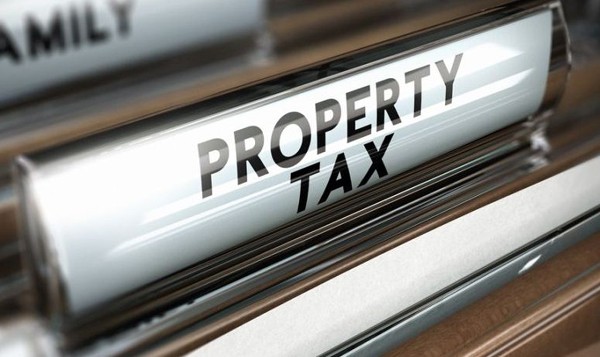Property tax ‘freeze’ likely to be repealed, replaced
When Maine’s legislature returns Tuesday, July 25, it is expected to replace the property tax stabilization (“freeze”) act for seniors with new provisions in existing laws.
The property tax freeze went into effect with the April 2023 tax year, allowing seniors to freeze taxes on a residential property meeting certain qualifications. It applies to this September’s tax bill but will end Dec. 31, 2023 if legislators approve the proposed change.
The freeze required residents to file a request each year with their town office and to meet eligibility requirements. However, concerns were raised early on that it did not adequately help those with the greatest need and that the benefit was not applied equitably.
Rebecca Graham, Senior Legislative Advocate with Maine Municipal Association, explained in a phone interview, “It was problematic. It was clear to the state that it was not sustainable.”
Graham is also a member of the Edgecomb Planning Board and spoke about the changes from a local standpoint as well. “(The freeze) should have been means tested. People who can afford taxes shouldn’t be subsidized by people who can’t.”
As State Rep. Holly Stover explained, “While very well-intentioned, the Senior Property Tax Stabilization Program that was passed last year had significant flaws. With no income eligibility requirements or limits based on property value, the program did not target relief to those who actually need it and created significant financial concerns for our municipalities,” said Stover.
“To help provide meaningful tax relief to older Mainers, we opted to repeal this program while expanding the state’s Property Tax Deferral Program and Property Tax Fairness Credit,” she added.
State Sen. Cameron Reny agreed. “This change is good for low- and middle-income older Mainers. It phases out a well-intentioned but flawed program that was unaffordable in the long run. In its place, we're expanding two existing, successful programs to provide more targeted relief to folks who actually need it.”
So what are the new provisions?
Senior Property Tax Deferral Program
“Maine Legislators have replaced the Property Tax Stabilization Program for Seniors and in its place, expanded two existing programs – the Senior Property Tax Deferral Program and the Property Tax Fairness Credit,” Sharon Huntley, Director of Communications with Maine’s Department of Administrative and Financial Services (DAFS) told the Register in a written response to our inquiry.
While both programs have requirements based on income, the maximum amount to qualify will be raised by the changes voted by the Legislature, so more residents will be able to participate.
Under the Senior Property Tax Deferral Program seniors or those who are permanently disabled and not able to pay can defer paying their property taxes until they sell the property, die, or move.
Graham pointed out, the deferred taxes are a “non-foreclosing lien” which postpones payment so the individual can remain in their home.
Huntley further explained, “The new budget expands eligibility requirements, doubling both allowable income and liquid assets. For applications filed after January 1, 2024, joint owners must have combined liquid assets of less than $150,000 ($100,000 if a single owner) and combined income of less than $80,000. The new expansion also now allows taxpayers who are delinquent in their property taxes for up to two years to participate in the program.”
In addition, eligibility for the program requires that the applicant owns and occupies the property as their principal residence and be receiving a homestead exemption on the property. The changes will mean the municipality will receive a fixed reimbursement of 76% for the homestead exemption from tax year 2023 onward, according to Huntley.
Property Tax Fairness Credit
The second expanded program is the Property Tax Fairness Credit which also helps working families as well as seniors, according to Graham. “It’s means tested and targeted for those who actually need the relief,” she added.
As the Department of Revenue’s website explains, “Eligible Maine taxpayers may receive a portion of the property tax or rent paid during the tax year on the Maine individual income tax return whether they owe Maine income tax or not. If the credit exceeds the amount of your individual income tax due for the tax year, the excess amount of credit will be refunded to you.”
For Maine homeowners or renters, “Starting January 1, 2024, for people 65 and older, the new budget increases the maximum credit from $1,500 to $2,000 and the maximum benefit base from an estimated $2,450 (single) or $3,200 (married filing jointly without dependents) to $4,000 (indexed to inflation) regardless of filing status,” Huntley explained.
“It increases the amount Mainers can receive,” Graham said. In effect, she explained, even if you do not owe income tax, you may still receive a refund from the state based on the property taxes you paid and your income. In order to receive the refund, Mainers who qualify only need to file an income tax return with the state.
“Under this change, the average Mainer will go from saving about $100 per year to saving $500 a year,” Reny said. “It will also help older Mainers who have downsized and now rent instead of owning their own home. This is a smart move that makes sense for our state.”
Saying the changes also relieved the “potential financial strain” on town offices, Stover added, “This is a sustainable solution that will help more Mainers lower their property taxes and age with dignity in their homes.”
“The Legislature needs to come back to vote on it,” Graham said. “But it’s unlikely not to pass.”
MMA is working with assessors and the state to make sure the public becomes aware of the new options. The organization represents close to 500 municipalities in Maine.
























